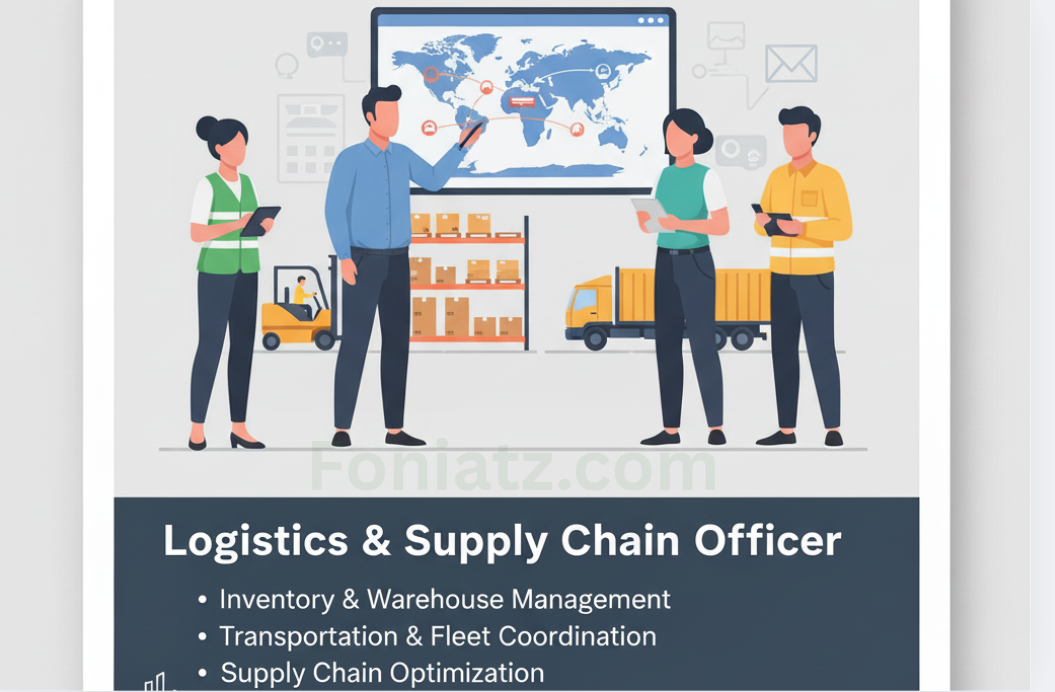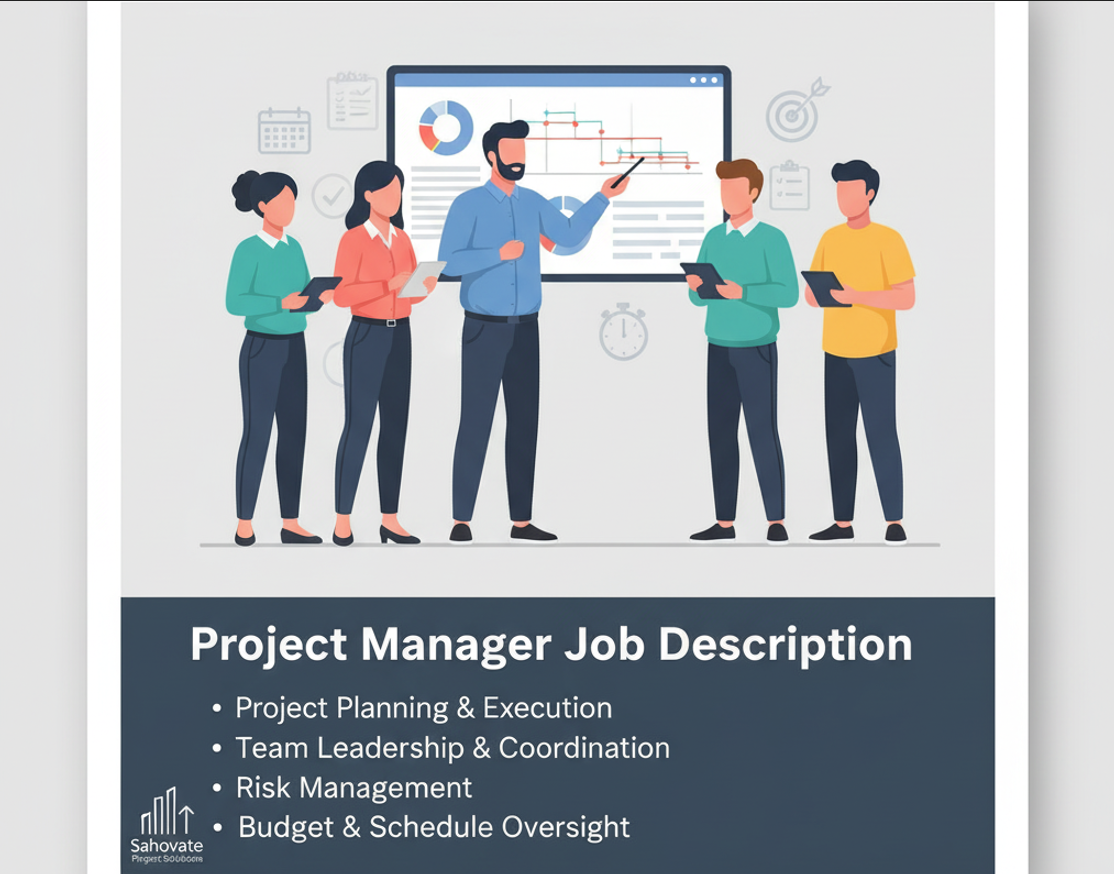Logistics & Supply Chain Officer Job Description
Hello, dear readers! We’re so glad you’re here at Foniatz.com, your go-to source for straightforward and supportive career advice in Tanzania. With our country’s thriving sectors, such as agriculture, mining, and tourism, logistics and supply chain roles are crucial to keeping things moving smoothly. Suppose you’re exploring the Logistics & Supply Chain Officer job or looking to hire one. In that case, this article breaks down the job description, everyday tasks, requirements, and salary expectations based on 2025 trends. We’re here to help you make sense of it all with easy-to-follow insights. Let’s get started on this critical career path!
What Does a Logistics & Supply Chain Officer Do in Tanzania?
A Logistics & Supply Chain Officer in Tanzania manages the flow of goods and services from suppliers to customers, ensuring everything arrives on time, cost-effectively, and without issues. In a growing economy like ours, with ports in Dar es Salaam handling imports and rural areas needing reliable distribution, this role supports industries such as agriculture (like sugar cane supply at Kilombero), manufacturing, and NGOs. You’ll work in companies, warehouses, or transport firms, coordinating transportation, inventory, and procurement to keep operations efficient.
Tanzanian employers value officers who understand local challenges, like road conditions or customs at the Dar es Salaam port. It’s a hands-on job that combines planning, problem-solving, and teamwork to help businesses thrive and communities achieve their needs.
Key Tasks of a Logistics & Supply Chain Officer
Logistics & Supply Chain Officers handle a variety of responsibilities to keep the supply chain running like clockwork. From recent job postings, here’s what a typical role looks like:
- Managing Inventory and Warehousing: Track stock levels, organize storage, and ensure goods are stored safely and readily accessible. In Tanzania, this may involve monitoring perishable items, such as agricultural products, in facilities across regions like Morogoro or Arusha.
- Coordinating Transportation and Logistics: Arrange shipping, trucking, or port operations, including fleet management for deliveries. You’ll monitor routes, handle documentation, and optimize for costs, especially using corridors like those for WFP emergency responses.
- Procurement and Supplier Relations: Source materials, negotiate with vendors, and manage contracts to get the best deals. This includes analyzing market trends, like pricing for imports, to support cost savings.
- Risk Management and Compliance: Identify risks such as delays due to weather or customs, and ensure all activities comply with Tanzanian regulations from relevant authorities, including the Tanzania Revenue Authority. You’ll also prepare for audits and maintain records.
- Data Analysis and Reporting: Collect data on supply chain performance, forecast needs, and report to managers. Tools help track metrics such as delivery times and costs, recommending improvements to enhance efficiency.
- Team Coordination and Customer Service: Work with teams, suppliers, and clients to resolve issues and ensure smooth distribution. In roles like those at WFP, this includes supporting emergency logistics and building partnerships.
Entry-level officers might focus on daily tracking, while more experienced ones lead projects or handle international shipments.
Requirements and Qualifications Needed
To succeed as a Logistics & Supply Chain Officer in Tanzania, employers seek a combination of education, skills, and experience. Based on 2025 job trends:
- Education: A bachelor’s degree in Supply Chain Management, Logistics, Procurement, Business Administration, or a related field from universities like the University of Dar es Salaam or the Tanzania Institute of Accountancy. Diplomas in Procurement and Logistics are great for entry-level positions.
- Experience: 2-5 years in logistics, procurement, or supply chain roles, often starting with internships at firms like DHL or local transport companies. Fresh graduates can enter through trainee programs.
- Key Skills: Strong organizational and analytical abilities, knowledge of transport software, and understanding of Tanzanian customs and trade laws. Effective communication in both English and Swahili is essential for interacting with teams and stakeholders. Problem-solving for issues like supply disruptions is a must.
- Certifications: Helpful ones include Certified Supply Chain Professional (CSCP), Certified in Logistics, Transportation and Distribution (CLTD), or local qualifications from the Chartered Institute of Procurement & Supply (CIPS). Registration with professional bodies, such as the Tanzania Institute of Management, adds credibility.
Employers often prefer candidates who can travel and adapt to fieldwork in areas such as Mwanza or Zanzibar.
Salary Expectations in Tanzania
Salaries for logistics and supply chain officers vary by experience, location (higher in Dar es Salaam), and employer type, such as private firms or NGOs. Drawing from 2025 market data and job postings:
- Entry-Level (0-2 years): TZS 700,000 to TZS 1,200,000 per month (about $250-$430 USD), with opportunities for training and allowances.
- Mid-Level (3-5 years): TZS 1,500,000 to TZS 2,500,000 per month ($540-$900 USD), often including bonuses for efficient operations.
- Senior-Level (5+ years): TZS 3,000,000 to TZS 4,500,000+ per month ($1,080-$1,620+ USD), especially in international roles or large companies like WFP, plus benefits like health insurance and transport perks.
Many positions offer performance incentives, and Tanzania’s cost of living makes these salaries go further. Freelance or consulting can boost earnings.
Opportunities and Challenges
Tanzania’s expanding trade and infrastructure projects create numerous opportunities in logistics, ranging from port operations to agricultural supply chains. You could work with exciting organizations like the WFP or private firms in tourism. Challenges include dealing with infrastructure delays or global supply issues, but these build valuable expertise. Network at events like logistics forums or join LinkedIn groups for Tanzania supply chain pros to find opportunities.
Thank You for Choosing Foniatz.We’re Here for Your Success!
We’re genuinely thankful you visited Foniatz.com, the best place for caring, practical career guidance designed for Tanzanians. As your top resource for navigating professional paths, we’re committed to supporting you with info that truly helps. Whether you’re gearing up for a Logistics & Supply Chain Officer role or just curious, we wish you smooth journeys and rewarding achievements ahead. Stop by again for more articles, and share your questions in the comments.
Best wishes from our dedicated team!




